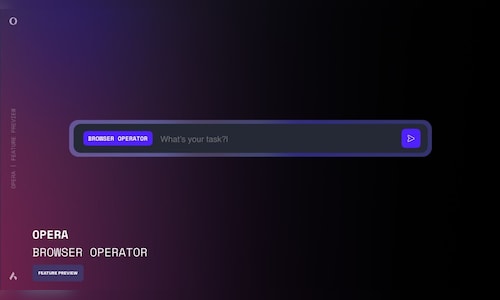“For more than 30 years, the browser gave you access to the web, but it has never been able to get stuff done for you. Now it can. This is different from anything we’ve seen or shipped so far,” said Krystian Kolondra, EVP at Opera.
“The Browser Operator we’re presenting today marks the first step towards shifting the role of the browser from a display engine to an application that is agentic and performs tasks for its users.”
The Browser Operator, currently in preview, allows users to issue natural language commands, which the browser then executes autonomously. For example, a user can ask the AI to purchase a pack of ten white Nike tennis socks in size 12, and the Browser Operator will complete the task without requiring manual input. Opera says that the aim is to free users from time-consuming online tasks, allowing them to focus on more meaningful activities.
Unlike traditional web browsing, which relies on user input at every stage, Opera’s AI-powered browser can independently navigate websites, make selections, and execute actions—all while keeping the user informed and in control. The AI is said to operate entirely within the browser environment, eliminating the need for virtual machines or cloud-based processing.
A key differentiator of Opera’s Browser Operator is its focus on privacy. Unlike other agentic browsing solutions that depend on cloud servers, virtual machines, or screen captures, Opera’s AI runs natively on the device. By keeping user data local, Opera ensures a higher level of security and privacy while maintaining the efficiency of the AI agent.
Availability and Future Plans
The Browser Operator is currently available as a preview as part of Opera’s AI Feature Drop programme. The company plans to integrate this feature into future browser updates, making AI-powered agentic browsing widely accessible.
The feature is being showcased at Mobile World Congress (MWC) 2025 in Barcelona, where attendees can experience firsthand how Opera is shaping the future of web browsing.


